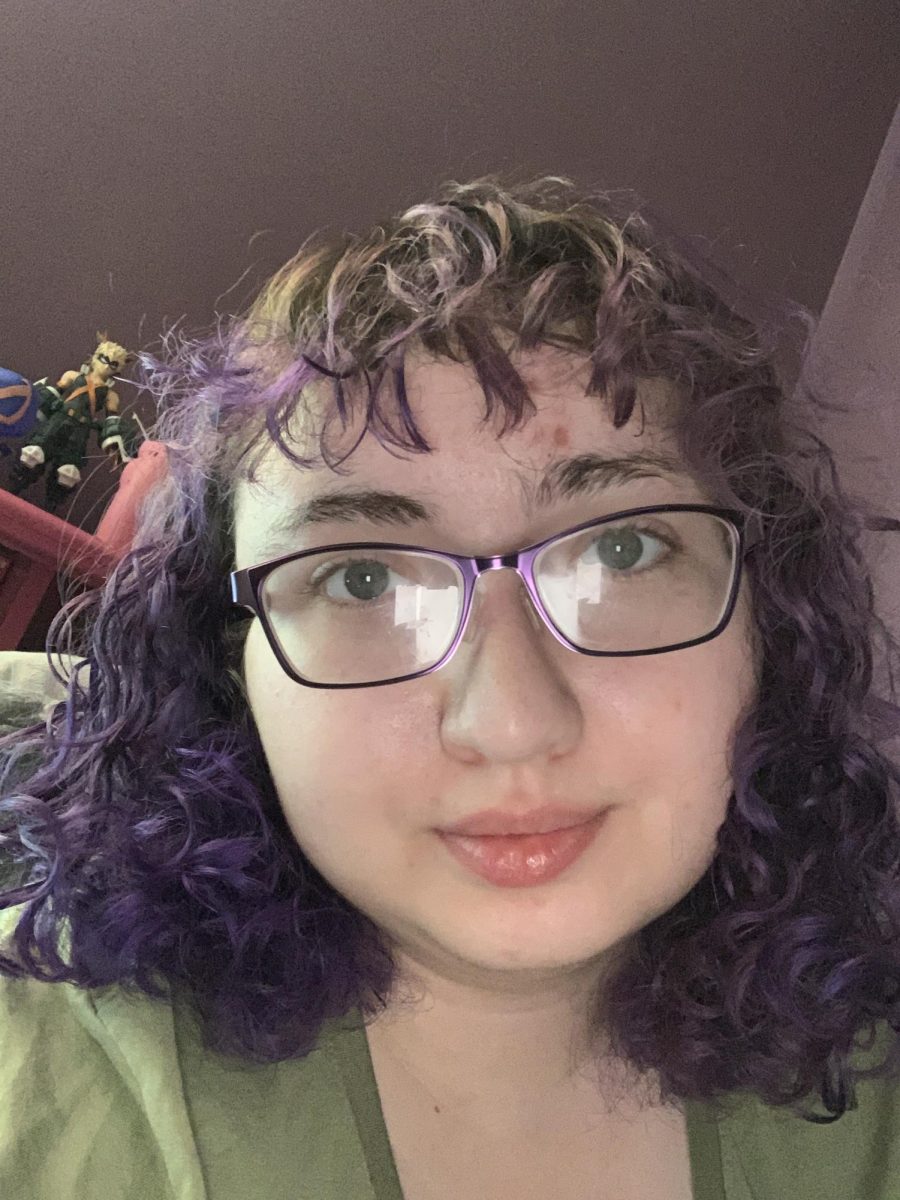Language is used in everyday life. As the foundation of written and spoken communication, it is a concept that most people use without a second thought.
Language is Willow Broussard’s passion; as a dedicated writer, her specialty is piecing words together and creating a whole new meaning behind them. Broussard was first introduced to the world of writing at the age of 12 and names J.K. Rowling as her inspiration.
“When I started reading Harry Potter, I started getting a lot of different fantasy worlds in my head, and I wanted to get them out on paper,” Broussard said.
That was only the beginning of Broussard’s writing journey; upon reading Rick Riordan’s Percy Jackson series, the writing flame was rekindled. Now, Broussard writes a variety of works that involve fantasy and romance elements.
When it comes to writing, Broussard aims to share her ideas with other people.
“I want to get my ideas out there. I don’t care how many people hear them, even if it’s just to my good friends,” Broussard said. “I just want to write so people can see what’s in my head.”
Some writers have a writing process — a set of steps they take to develop ideas and put them into words. Broussard does not have a strict writing process, but she does have a way of getting her ideas on paper.
“I just sit down, I get a little comfy, and then I just start writing,” Broussard said. “Sometimes I write for ten minutes. Sometimes I write for five hours.”
Broussard’s interest in writing and language translates into another project — a constructed language. As the name implies, constructed languages are built from scratch. Many constructed languages take inspiration from others. Some examples in popular culture include Valyrian and Klingon.
Broussard’s language is called Trela’vousa, which translates to the phrase “immortal tongue.” The inspiration for its construction was from the “Lord of the Rings” series, which consists of its own constructed language called Elvish.
While never having read the Lord of the Rings series, Broussard was highly inspired by J.R.R. Tolkien’s dedication to creating a fictional language.
“I found out when [Tolkien] was in college, he started writing Elvish, and he didn’t even have a story for it yet,” Broussard said. “I started researching how Tolkien’s process for writing a language was, and I just started doing it.”
The first step of creating a constructed language is familiarizing oneself with a language, native or foreign. To do this, Broussard spent two weeks reading a 35,000-word dictionary of the English language. Not only did Broussard read the entire dictionary, but she also kept track of what words she wanted to include in her own language.
Trela’vousa has 6,333 words and more still being developed. A mix of Greek, Latin, and French, Trela’vousa consists of Broussard’s own twist on certain words. The very first word developed in the language was “sheltre,” which translates to “gate” in English.
Broussard has a vision for the future of Trela’vousa.
“My goal for this language is for it to be greater than English,” Broussard said. “I found out that Tolkien was never fluent in his own language, and my goal is to become fluent in my language.”
At McHenry County College, Broussard is a fine arts major with the goal of being an art teacher.
She has plans to transfer to a four-year university and may pursue a minor in literature.
Outside of her writing and constructed language projects, Broussard finds joy in art, singing, and role-playing games such as Dungeons and Dragons. With art, Broussard uses the hyperrealistic style. Hyperrealism is an advanced form of art that involves attention to detail to develop lifelike pieces of work.
Writing is an activity that many want to participate in; however, some may be unsure of where to start. Broussard received advice from an English instructor that has helped her in her writing journey, which she believes may benefit others.
“Don’t care about what words you write. Just get your words on the page. You can go back and edit it later,” Broussard said. “Just make sure you get your ideas and your message onto the paper before anything else.”
No matter what the future holds for Broussard, it is evident that her love for writing is here to stay.
Her devotion to language reveals her appreciation for a form of communication used daily.
Language is something that all people, past and present, have relied on to communicate. It is a universal aspect of human culture that will never go away — and as Broussard’s work evolves, so will the concept of language.




